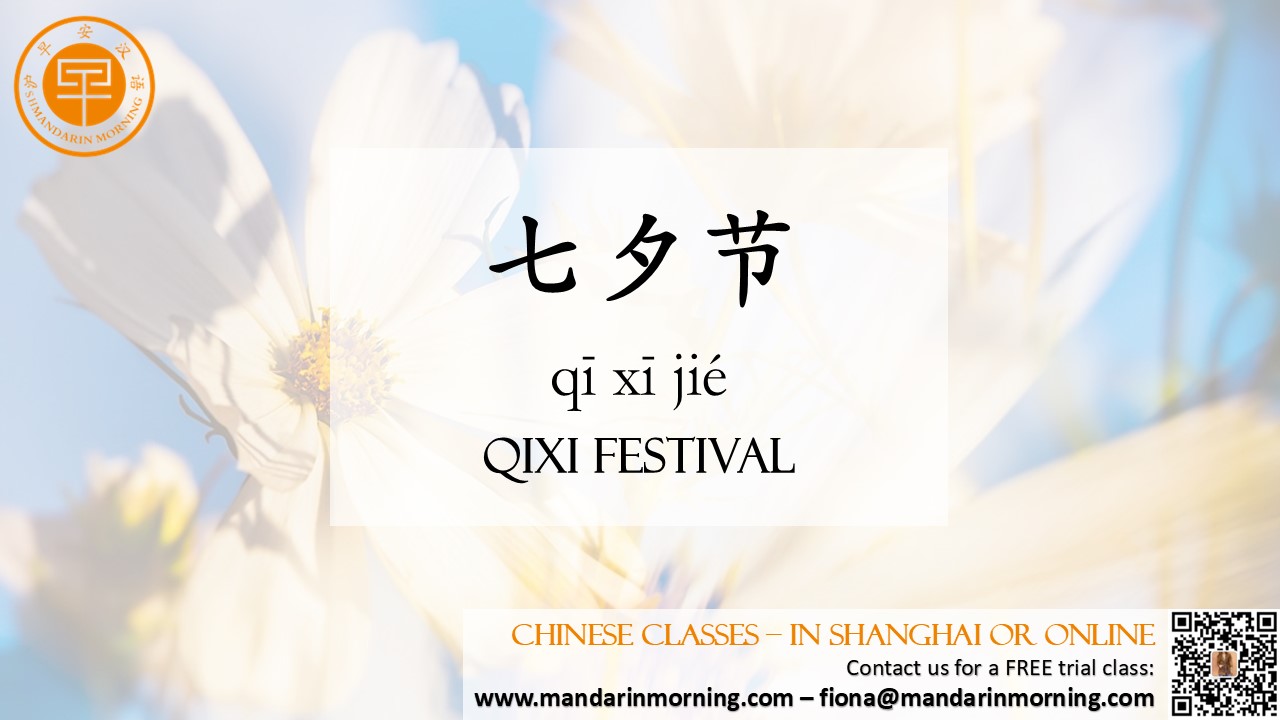| Qixi Festival, also known as Double Seventh Festival or Chinese Valentine's Day, has been a traditional Chinese romantic festival for over 2,000 years. The Qixi Festival, 七夕节 (Qīxījié) in Chinese, pronounced, is named after the seventh day of the seventh lunar month in the traditional Chinese calendar. In Chinese, qi means 'seven(th)', xi means 'sunset(s)', and jie 'festival', so it's literally the 'Seventh Sunset Festival'. In 2024, Qixi Festival falls on August 10 (Saturday). There is no public holiday.  How Is Qixi Festival Celebrated? The festival has been celebrated since the Han Dynasty (206 BC – 220 AD). Many of the traditional customs are disappearing or are no longer observed. You are more likely to find the following customs practiced in rural areas. Celebrating the Qixi Festival in Traditional Times Threading skills were the most popular custom for women to show during the evening of the Qixi Festival. The long-standing tradition to show threading skills was to speedily thread a needle under the moonlight. If someone could thread seven needle holes without faltering, they were considered to have a skillful hand. Worshiping the Weaver Fairy, Zhinü (worshipped as the star Vega), involved a table of offerings: tea, wine, fruits, longans, red dates, hazelnuts, peanuts, and melon seeds. In the evening young women sat around the table, displaying their needlework, gazing at Vega, and praying for a good husband and a happy life. Then they'd play games or read poems until midnight. Honoring oxen: Children picked bunches of wildflowers and hung them on the horns of oxen in honor of the legendary ox. Eating Qixi Festival food: During the Qixi Festival, people enjoyed a variety of delicious food that held special significance. People made and ate 'skill fruit' or qiǎo guǒ, which were fried, thin pastries in different shapes. Another popular food was the 'flower melon'. Young women also carved exotic flowers, animals, and unusual birds, usually on the skin of melons. Some sweet desserts, such as sweet rice cakes and red bean soup, were also popular. Celebrating the Qixi Festival in Modern Times Nowadays, people commonly celebrate Chinese Valentine's Day by exchanging gifts, such as flowers, chocolates, jewelry, handmade crafts, and other presents, with their loved ones. They also enjoy romantic dates that may include special outings, scenic walks, or intimate dinners, rather than strictly adhering to traditional customs. |